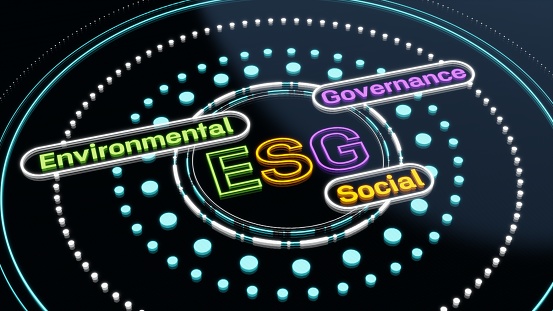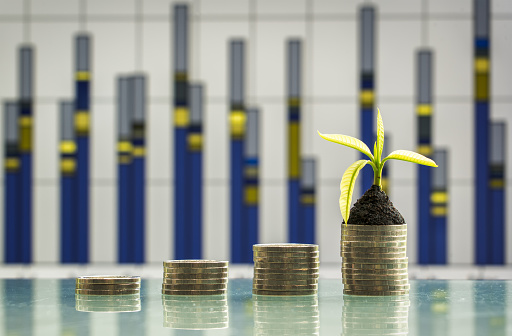
Editor's note: Djoomart Otorbaev is the former Prime Minister of the Kyrgyz Republic, a distinguished professor of the Belt and Road School of Beijing Normal University, and a member of Nizami Ganjavi International Center. The article reflects the author's opinions and not necessarily the views of CGTN.
The Sustainable Development Agenda is changing almost everything on our planet, including changes in the corporate world. As it is widely known, ESG stands for environmental, social and corporate governance. In less than 20 years, the ESG movement has grown from a modest corporate social responsibility initiative launched by the United Nations to a global phenomenon.
If such assets grow by 15 percent per annum in the coming years, half as much as in the past five years, then by 2025, ESG's assets under management could grow to more than one-third of the projected total of $140.5 trillion. According to Bloomberg's analysis, ESG's assets could reach $53 trillion in 2025, up from $37.8 trillion at the end of this year. In 2018, such investments were $30.6 trillion, and in 2016, $22.8 trillion. This year, investors have poured over $120 billion in exchange-traded funds (ETFs), which practising ESG, double last year's amount. By 2025, according to Bloomberg, the total investment in ESG ETFs should reach $1 trillion, making them one of the most popular investment products on the market.
Environmental principles define how a company cares about the environment and reduces environmental damage. For example, footwear brand Timberland has partnered with tire manufacturer Omni United to make boot soles from recycled tires. Social principles show the company's attitude towards employees, partners, consumers, suppliers and customers. According to a study by global communications firm Edelman, 71 percent of consumers are willing to abandon a brand if they prioritize profit over caring for people.
Investors are less supportive of companies with low ESG ratings. In 2020, EY surveyed institutional investors - insurance and investment companies, pension funds and charitable foundations. As a result, 98 percent of those surveyed said they closely follow the companies' ESG ratings. Another study found that 42 percent of investors claim to take ESG principles into account to improve portfolio performance. Now the regulators, society and the market all take care that investors from go words over to actions. For example, regulators began to analyze the portfolios of such companies and check how actual data correspond to the statements.
Already, investors can see that taking ESG criteria into account improves portfolio returns, creating good long-term prospects for the ESG investment segment. Since 2007, the MSCI Emerging Markets ESG Leaders Index has returned 158 percent, exceeding the return of the conventional MSCI Emerging Markets by an impressive 93 percent.

Moreover, ESG funds are less risky investments compared to similar traditional instruments. From 2004 to 2018, the decline in profitability in ESG funds was 20 percent less than in conventional funds, according to the Morgan Stanley Institute for Sustainable Investment. The high performance of these funds is driven by lower political, reputational and regulatory risks, leading to more stable cash flow and improved profitability.
However, experts point out that the business drive to meet ESG criteria has drawbacks. First, corporations may just use this a ploy to whitewash their reputation and hide the actual harm from their activities. Environmental rhetoric benefits companies, but real and often costly actions do not bring tangible financial benefits. And investment managers are legally required not to do anything that could jeopardize their profit. As a result, they verbally comply with the ESG investment criteria, but they look for ways that bring higher returns in practice.
For this reason, new specialized agencies measuring ESG ratings are springing up like mushrooms after rain. The most famous are S&P Dow Jones Indices, MSCI, Bloomberg, Refinitiv and others.
For example, the Kering conglomerate has been the leader in the MSCI rating among companies in the clothing and luxury goods industry since 2019, thanks to its sustainability agenda.
With all the enthusiasm observed in the world regarding the introduction of ESG principles into corporate practices, it is evident that they will need to be regularly optimized since reality is constantly making its adjustments and dictating new challenges.
There has recently been a significant bias towards the environmental challenges. And this has partly led to the energy crisis that we are now witnessing. After this year's events, when gas prices rose sharply, and countries began to use traditional energy resources more actively, everyone realized that it was impossible to abandon the use of coal quickly. Investors are now saying they will be phasing out high-carbon assets less dramatically. Their goal is to exit coal assets much later than planned at the beginning of this year.
The observed bias towards environmental challenges can bring severe social problems very soon - already this winter. We see extremely high energy prices in Europe, which is causing a corresponding social reaction. Households are unlikely to be willing to pay significantly larger bills and not grumble at the same time. We all need to strike a balance between ensuring companies growth, the well-being of people, and the demands of the ESG.
(If you want to contribute and have specific expertise, please contact us at opinions@cgtn.com.)

